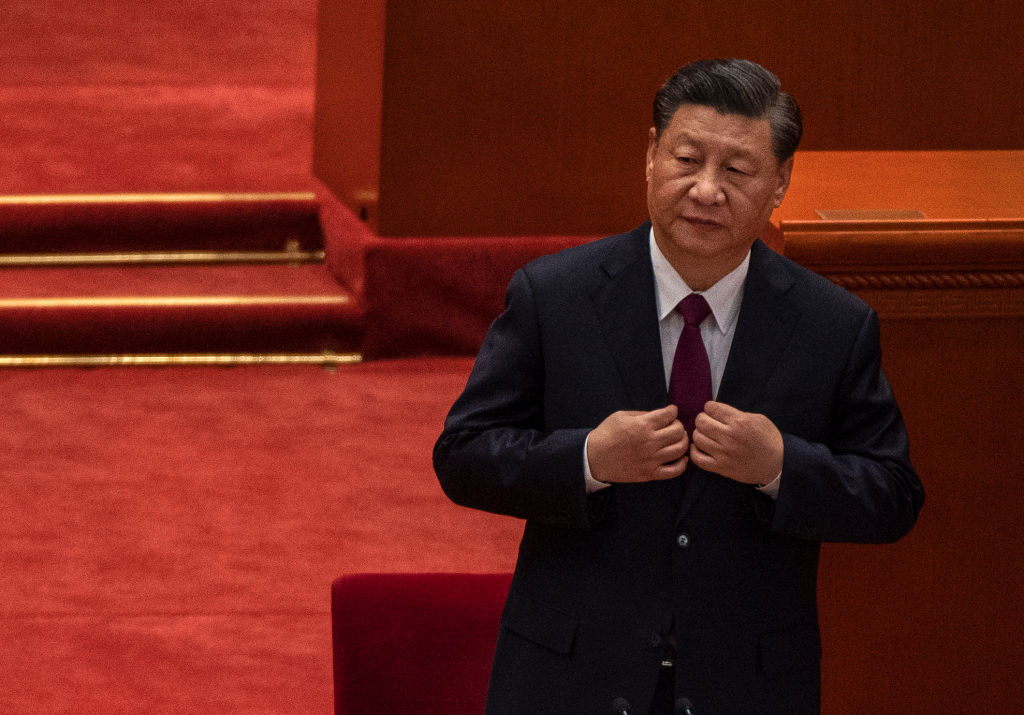In April 2022, six weeks after Moscow’s invasion of Ukraine, President Biden signed legislation to suspend Russia’s Permanent Normal Trade Relations (PNTR) status. “Revoking PNTR from Russia,” he said, “is going to make it harder for Russia to do business with the United States… The free world is coming together to defeat Putin.”
PNTR status, also known as Most Favored Nation (MFN) status, is a designation granted among World Trade Organization members. Receiving nations are awarded all trade advantages that any other nation receives.
Revoking PNTR status from Russia was a strategic move. It opened the door to deliver comprehensive economic strikes against Moscow and sent a clear signal to markets. But five months later, Russia continues its offensive against Ukraine, with the Chinese Communist Party serving as Moscow’s primary international backer. This demands attention. The Russia PNTR move was reactive. It did not deter Putin’s ambition or impose costs on his chief ally, now eyeing further international aggression. Might a proactive move to rescind China’s permanent trading status have strategic value at this stage?
The real threat facing the international system is not simply Russia’s invasion of Ukraine. It is not Russia’s assault on international norms. It is a rising axis of authoritarian aggressors — led by China with Russia — intent on strangling the international system by weaponizing economic interdependence.
The answer, then, is not simply to push back on Russia’s aggression, just as it is not simply to throw a whack-a-mole jumble of sanctions and tariffs at China. The answer is strategic economic competition with Beijing that builds on the recent precedent of actions taken against Russia. Revoking China’s PNTR status is a step toward seriously defending the international order and the free-market ideals that non-market Beijing has distorted over the past 20 years.
The US granted China PNTR status in 2000 as part of Beijing’s World Trade Organization accession. Then-president Bill Clinton led the charge. He promised that the move would make the United States richer, China freer, and the world more peaceful.
The opposite proved true.
China’s PNTR designation facilitated outsourcing to China, and with it the hollowing out of American industry. Instead of espousing freedom, a richer Chinese Communist Party tightened control of its domestic economy and implemented a genocide against its people. As for the promised global peace, President Zelensky might have something to say about that.
Moreover, Beijing has violated the obligations that come with PNTR status. Receiving governments must not restrict emigration of their people. China not only controls — and prohibits — that of its minorities, but also, according to the United Nations, monitors their communications with people abroad and their movements within China.
China is a national security adversary and source of global economic distortions. It is also a human rights abuser.
These realities have been clear for decades. Senator Bernie Sanders in 2005 introduced a bill to repeal China’s PNTR status, saying, “Anyone who takes an objective look at our trade policy with China must conclude that it is an absolute failure and needs to be fundamentally overhauled.” More recently, in 2021, Republican Senators Tom Cotton, Jim Inhofe, and Rick Scott introduced a bill to end China’s PNTR status.
What has been less clear is the strategic opportunity that revoking China’s PNTR status presents. Existing US tools of economic competition are inadequate to address Beijing’s threat: constrained by unwieldy bureaucracies, political pathologies, and regulatory limitations, they permit, at best, a half-hearted “whack-a-mole” defense. Addressing China’s PNTR status could leapfrog these constraints. It could open the door to strategic action to reset the foundational structure of US-China economic relations.
It could send a clear signal to market actors about the end of the foolish assumption that economic integration would liberalize the communists in Beijing. It would also allow the United States to reclaim the moral high ground of refusing to permit permanent trade with non-market authoritarian regimes that abuse their own people.
And here’s the kicker: the American public supports this. The immediate, conventional response to any proposal to revoke China’s PNTR status is simple. It would be too expensive, the economies are too intertwined, and the American consumer wouldn’t stand for it. But a poll conducted in July 2022 — when gas sat north of $5 a gallon — found that was not the case. It found that the plurality of likely voters supported revoking China’s PNTR status, even if that risked exacerbating inflation supply chain pressures. Only 35 percent were opposed, and 26 percent among Republicans.
Here is an issue that has public and bipartisan support and both immediate and historical precedent. Here is a strategic opportunity and national obligation. Here is an opportunity for the US to come together not only to defeat Putin but to begin to seriously correct China’s non-market distortion of the global, free trading system.
Nathan Picarsic and Emily de La Bruyere are senior fellows at the Foundation for Defense of Democracies and co-founders of Horizon Advisory


















